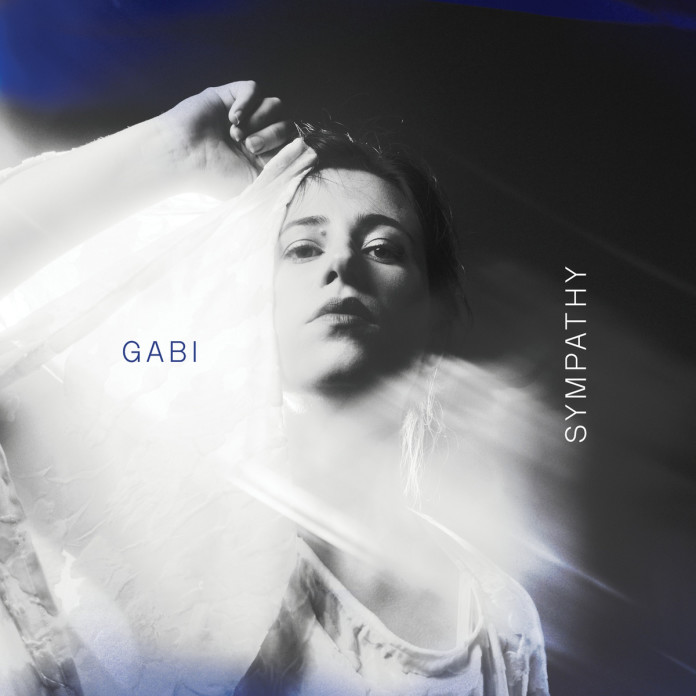RiYL: Oneohtrix Point Never, Class Actress, Donato Dozzy & Anna Caragnano
RT: “Fleece,” “Home,” “Da Void,” “Mud”
Anyone can synthesize sounds fitted with every bit of control in pitch, timbre, and frequency but nothing is as purely unfiltered as the sound of a human’s voice. Vocaloid Hatsune Miku and the like are the closest neighboring mimics to au naturel, and even they ‘feel’ inorganic, and the ability to distinguish them as an inauthentic voice is still present. There are artists who exploit this intrinsic biology to create environments with universal emotions like grief, pain, joy, and craving as elements that can be physically felt as discernible embodiments. GABI is one of them.
To preface, extrapolating a classically trained vocalist with a background in opera à la mode to vaporwave, Oneohtrix Point Never-esque harmonies requires little prediction to tell that the two not-far-removed aesthetics combine to form a symphonic pairing. GABI is the name of Gabrielle Herbst and collaborators Matthew O’Koren (percussion), Rick Quantz (viola), Josh Henderson (violin), and Aaron Roche (electric guitar / trombone). It includes production by Daniel Lopatin (Oneohtrix Point Never) and Paul Corley (Oneohtrix Point Never, Tim Hecker), which is influential information considering it is released by Lopatin’s own record label, Software.
The record breathes – both heavily and shallowly – and is far from stagnant which is easy to unintentionally return to with instrumentation like this, one that can be described as minimal electronic hybridized with classical orchestra. Its path is difficult to follow because it is subtle, listen closely and the lyrics transition from one-syllable phrases to relatable, concrete imagery. The disconnect between written words and spoken felt ones are portrayed in an elegant circumstantial manner that adds to the underlying complexity of the record as a whole. Its expressive, communicative side is buried in the translation between the two.
Sorrowful, tear-jerking vocals are drenched by percussion and electronic dings that emulate pacemakers and monotones. Opener “Koo Koo” begins with loop pedal chants that are keen to lend themselves later on. “Da Void” sounds like a trauma-filled memory or confession. Its simple guitar strings give way to marimba-y bright tones. Eventually gasping voices struggle to be understood and cascade on themselves to incomprehensible means. It seems like a song about purposeful changes to one’s destiny – the amount of proactive control that truly lies in daily choices. Her voice follows a subdued timbre that oscillates in each song, as well the larger scale of the album. “I have recently been trying to build rhythms by imitating the way that light reflects on walls or leaves reflect on the ground,” Herbst told an interviewer in 2012; “constant fluctuation, random but with a sense of purpose and plausability. I seek to make organic rhythms with an internal logic even if that logic is not obvious or straightforward.” Immediately apparent here, melodies and bpms fall into a truncating golden rectangle sequence – impossible to calculate but naturally soothing to any ear.
“Love Song” is seductive, reaching out to touch listeners via eerie, meatless echoes. “Mud” with harrowing violin strings reminiscent of the OST of Under the Skin, composed by Mica Levi. Besides marimba/xylophone tinkles, it is beatless and the melodies are carried on Herbst’s vocal ‘stretcher’. “Maybe we are mud, sliding away” is sung and stretches out to 15 seconds; creating variances of the line layered over each other. Some tracks drone on with one-liners (e. g. “Where” repeats “where would I go without you?”) and uncomfortable, tightly uttered ‘ih’s’ on “Falling create a pulse that ultimately pours into crescendo next to an oozing violin. Static abrasion makes appearances to conjure confusion amidst crisp words. The plotlines carve out stories eventually turning full circle with themes of rampant destruction first, then renewal and outward growth. Pure euphoria is rare, but “Fleece” ebbs and flows until its foreboding cycle is complete, preparing for a climax into a momentous, cathartic release. Shrieking violin screams of pain on “Home” accompany Herbst while she complacently states “[she’s] home.”
The whole record phase shifts like a seesaw balanced by contagious solemnity on one seat and angelic bliss on the other. It’s intimate. It punctures the soul then sequentially inflates it. What truly makes it consumable is the return to a human’s voice as the centerpiece, the solar system sun of Sympathy – following its supercoils and unravelings to set an ephemeral realm. The piano, guitars and strings all pay homage to it in a direct way, exemplified in the last track, “Hymn.” And this quality ultimately places Sympathy as a work of art that distances itself from other singer-songwriter-backed-by-electronic-producers pieces.


